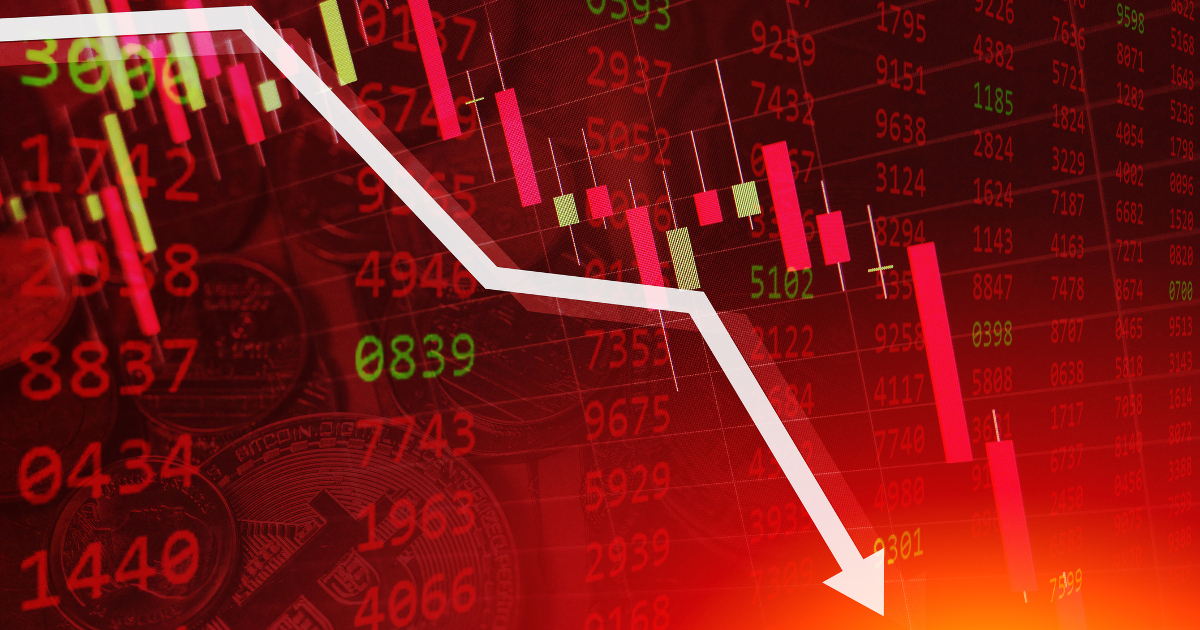
Peloton Interactive, Inc. (PTON) provides a connected, technology-enabled interactive fitness platform. The company offers services like instructor-led boutique classes for its customers. Also, its product portfolio includes Peloton Bike, Peloton Bike+, Tread and Tread+, bike mat, heart rate monitor, and dumbbells.
PTON was among the biggest winners during the COVID-19 pandemic, as its home exercise equipment and subscription-based fitness classes were in huge demand. The company’s total subscribers grew from 700,000 to nearly 3 million during that period.
PTON lost its edge as the world returned to pre-pandemic lifestyles over the past year. The company has been hit hard by weakening demand and softening sales as people returned to gyms and physical fitness sessions.
Its average monthly workouts per Connected Fitness subscription have plummeted 43% from its peak of 26 to 14.8 during the previous quarter. Its total platform workouts have declined 20% sequentially and 4% year-over-year to 148.20 million.
PTON’s new CEO, Barry McCarthy, appointed earlier this year, had taken up the task of turning the company around through corporate restructuring. In a desperate bid to stay afloat, the company has taken up cost-cutting measures like reducing its workforce. The company has undertaken four rounds of job cuts this year.
In addition, to lower costs further, the company is outsourcing all manufacturing and reducing costly unsold inventory. BMO Capital Markets analyst Simeon Siegel said, “We fear growth is in the rearview and attempts to keep expanding will prove profit eroding.” The analyst also noted that subscriber loyalty remains high but has begun to flag.
In its efforts to grow sales, the company has partnered with Amazon to sell its products on the platform. Similarly, its products are available at Dick’s Sporting Goods (DKS) outlets.
So far, these measures have yielded little results as its EPS and revenue failed to beat consensus estimates in the last quarter. The company’s loss per share came in 70.7% higher than the consensus estimates of $0.77. Also, its revenue missed analyst estimates by 0.6%.
For the fiscal 2023 first quarter ending September 30, 2022, PTON expects its total revenue to come in the range of $625 to $650 million, indicating a year-over-year decline.
PTON’s stock has declined 78.1% in price year-to-date and 91% over the past year to close the last trading session at $7.83. It is trading 92.1% below its 52-week high of $99.36, which it hit on October 26, 2021.
Here’s what could influence PTON’s performance in the upcoming months:
Disappointing Financials
PTON’s revenue declined 27.5% year-over-year to $678.70 million for the fourth quarter ended June 30, 2022. The company’s cost of revenue increased 3.8% year-over-year to $708.50 million. Its total operating expenses increased 110.7% year-over-year to $1.17 billion.
Also, its net loss widened 297.3% year-over-year to $1.24 billion. In addition, its loss per share widened 250.5% year-over-year to $3.68.
Unfavorable Analyst Estimates
Analysts expect PTON’s EPS to remain negative in fiscal 2022 and fiscal 2023. Its revenue for fiscal 2022 is expected to decline 14.8% year-over-year to $3.05 billion. Its EPS is expected to decline 76.5% per annum over the next five years.
Stretched Valuation
In terms of forward EV/S, PTON’s 1.23x is 16.5% higher than the 1.05x industry average. Likewise, its 8.39x forward P/B is 249.2% higher than the 2.40x industry average. And the stock’s 0.87x forward P/S is 5.4% higher than the 0.82x industry average.
Low Profitability
PTON’s trailing-12-month net income margin is negative compared to the 5.62% industry average. Likewise, its trailing-12-month EBIT margin is negative compared to the 8.14% industry average. Furthermore, the stock’s 0.84% trailing-12-month asset turnover ratio is 18.6% lower than the industry average of 1.03%.
POWR Ratings Reflect Bleak Prospects
PTON has an overall F rating, equating to a Strong Sell in our POWR Ratings system. The POWR Ratings are calculated by considering 118 distinct factors, with each factor weighted to an optimal degree.
Our proprietary rating system also evaluates each stock based on eight distinct categories. PTON has an F grade for Quality, in sync with its low profitability.
It has a D grade for Stability, consistent with its 1.50 beta. Furthermore, the unfavorable analyst estimates justify the F grade for Sentiment. It has a D grade for Value, in sync with its stretched valuation.
PTON is ranked #58 out of 60 stocks in the Consumer Goods industry. Click here to access PTON’s ratings for Growth and Momentum.
Bottom Line
PTON is trading below its 50-day and 200-day moving averages of $9.88 and $17.62, indicating a downtrend. PTON is witnessing softening sales with falling consumer demand. The current uncertain macroeconomic environment is expected to exacerbate its problems further.
Given its poor financials, unfavorable analyst estimates, stretched valuation, and low profitability, it could be wise to avoid the stock now.
How Does Peloton Interactive, Inc. (PTON) Stack Up Against Its Peers?
PTON has an overall POWR Rating of F, equating to a Strong Sell rating. Therefore, one might want to consider investing in other Consumer Goods stocks with an A (Strong Buy) or B (Buy) rating, such as Ennis, Inc. (EBF), Mannatech, Incorporated (MTEX), and Société BIC SA (BICEY).
PTON shares were trading at $7.51 per share on Wednesday morning, down $0.32 (-4.09%). Year-to-date, PTON has declined -79.00%, versus a -21.15% rise in the benchmark S&P 500 index during the same period.
About the Author: Dipanjan Banchur

Since he was in grade school, Dipanjan was interested in the stock market. This led to him obtaining a master’s degree in Finance and Accounting. Currently, as an investment analyst and financial journalist, Dipanjan has a strong interest in reading and analyzing emerging trends in financial markets.
1 Fitness Stock That Continues to Cycle Lower in 2022 StockNews.com






